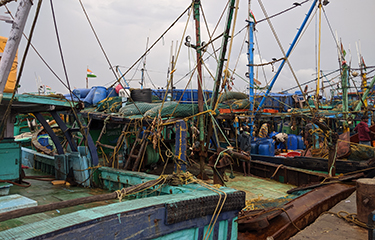A recent report by the U.S. National Marine Fisheries Service has recommended the continuation of a ban on all wild-caught shrimp from India following an inspection that found a lack of turtle-excluding devices on vessels involved in the fishery.
The decision came after the NMFS inspected the fishery and found it out of compliance with rules set by the U.S. State Department, which instituted a ban on imports from fisheries that don’t do enough to protect sea turtles, including India.
The industry in India has protested the more recent decision, according to the Economic Times of India, because the vessels that aren’t using the devices are usually situated in areas where the presence of any sea turtles is negligible. The Marine Products Export Development Authority of India has, in response to the report by the NFMS, submitted comments trying to reverse the ban.
As it stands, the ban could end up costing fishermen in Kerala, India, up to USD 300 million (EUR 271 million), according to Mathrubhumi. While the vast majority of shrimp shipped to the U.S. are raised via aquaculture, thousands of fishermen in Kerala rely on exports of wild-caught brown, Karikkadi, and deep-sea shrimp for their livelihoods.
According to Mathrubhumi, Chandragiri Nagaraja Rao Ravishankar, the director of the Central Institute of Fisheries Technology, has developed a turtle exclusion system that will work with current shrimp fisheries, and that the institute is “willing to modify it as per the instructions of American experts.”
Shrimp fisheries in the United States have used the devices since 1987.
Photo by Chris Chase/SeafoodSource







